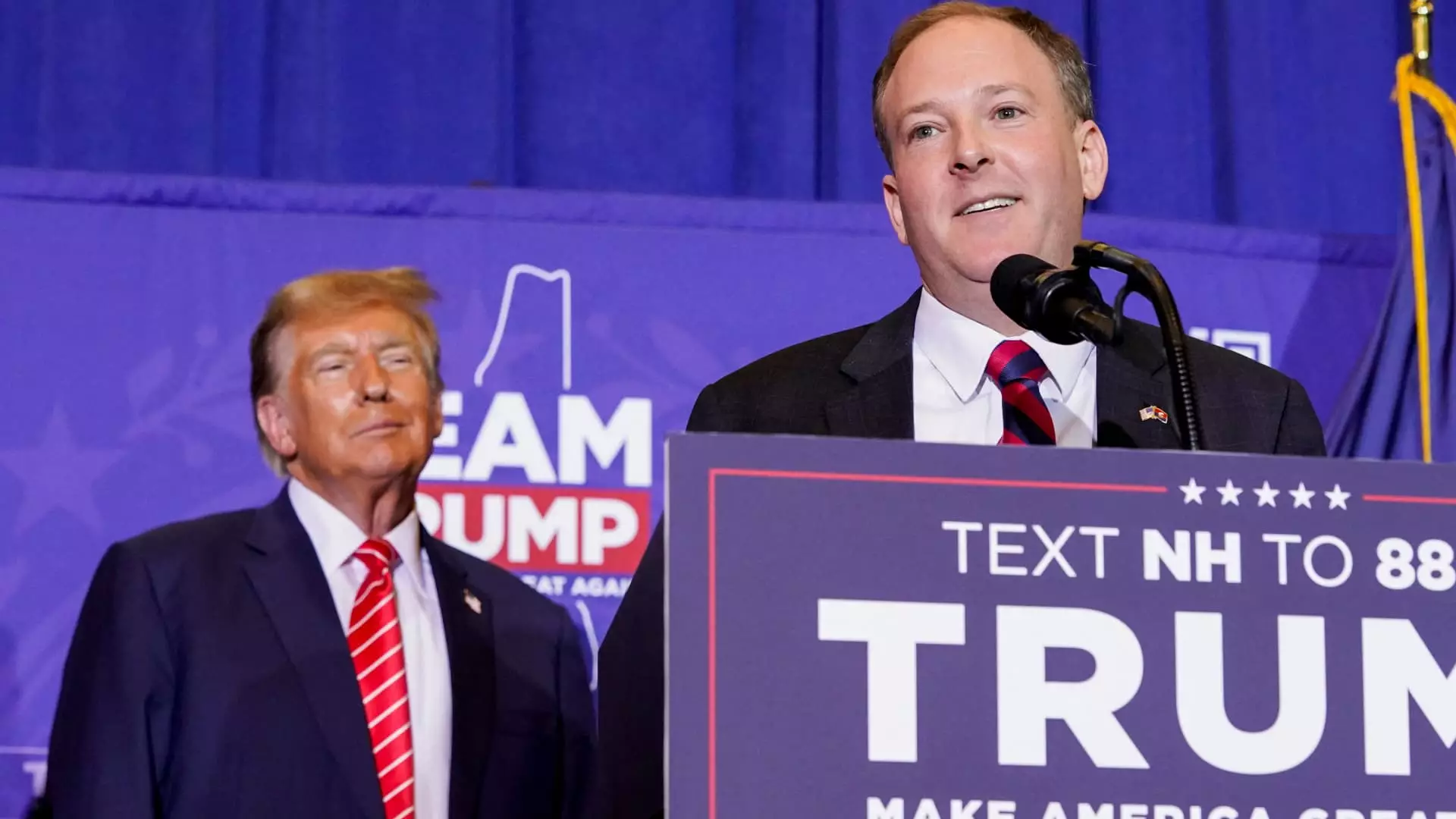The recent announcements regarding the potential appointments of Lee Zeldin as administrator of the Environmental Protection Agency (EPA) and Elise Stefanik as the U.S. ambassador to the United Nations (UN) by President-elect Donald Trump signify a continuation of the administration’s controversial approach toward governance. These selections raise crucial questions concerning environmental policy and international diplomacy, reflecting a broader ideological stance that seeks to prioritize perceived economic benefits often at the expense of environmental integrity and international cooperation.
Lee Zeldin’s nomination to head the EPA has sparked significant debate, particularly among environmental advocates. Zeldin, a lawyer with a history of representing New York’s Long Island, is characterized by an “America First” approach that views regulatory measures as impediments to business growth. In his statements, he emphasized a commitment to restoring U.S. energy dominance and revitalizing the auto industry, pledging to balance these ambitions with the need for clean air and water. However, critics argue that Zeldin’s prior voting record—including a meager 14% lifetime rating from the League of Conservation Voters—reflects a fundamentally “anti-environment” ideology.
The rhetoric presented by both Trump and Zeldin suggests a prioritization of deregulation as a means to relieve corporate burdens, which could potentially lead to the weakening of existing environmental protections. The executive director of the Sierra Club aptly noted how this choice could jeopardize public health and safety, unveiling a troubling narrative of corporate interests overshadowing ecological responsibility. Thus, Zeldin’s nomination raises alarms about the future of the EPA as a protector of environmental sustainability amidst alarming changes, especially given the pressing issues of climate change and pollution.
Elise Stefanik: A Shift in Diplomatic Strategy
Elise Stefanik’s appointment as U.N. ambassador is similarly indicative of the administration’s overarching philosophies. As a prominent figure within the House Republican Conference and a proponent of national security measures, her selection underscores a strategy focused less on multilateral engagement and more on reinforcing American strength on the global stage. Trump’s characterization of Stefanik as a “staunch advocate” confirms her alignment with his policies, positioning her as a key player in advancing a U.S. agenda that often eschews collaborative approaches in favor of a power-oriented paradigm.
The implications of her role might extend beyond foreign relations to potentially impacting the balance of power within the House of Representatives. If Stefanik steps down to undertake her ambassadorial responsibilities, this could inadvertently diminish the Republican majority’s strength, raising questions about legislative dynamics moving forward. This shift not only affects the internal politics of the U.S. but also echoes a broader trend of isolating the U.S. from traditional allies and multilateral agreements as previous administrations have sought to maintain.
These appointments could represent a wider philosophy that prioritizes immediate economic gains over long-term sustainability and diplomatic harmony. Zeldin’s plans to roll back regulations may invigorate certain industry sectors; however, the long-term consequences for public health and environmental quality pose significant risks. Meanwhile, Stefanik’s appointment at the UN could signify a tougher, more unilateral approach to international relations, reducing the U.S.’s willingness to engage in diplomatic negotiations often crucial for addressing global issues.
The choices made by President-elect Trump to appoint Zeldin and Stefanik may well reflect a continuation of an administration that favors corporate interests and nationalistic approaches over environmental stewardship and international collaboration. These decisions engender crucial debates about the direction of U.S. policy in both environmental and diplomatic contexts, raising concerns that the health of our planet and the integrity of international relations may be undermined at the altar of an aggressive economic agenda. The outcomes of these nominations will undoubtedly resonate through the corridors of power both in the U.S. and around the world, affecting millions as the implications of governance are brought to bear on the lives of citizens everywhere.


Leave a Reply